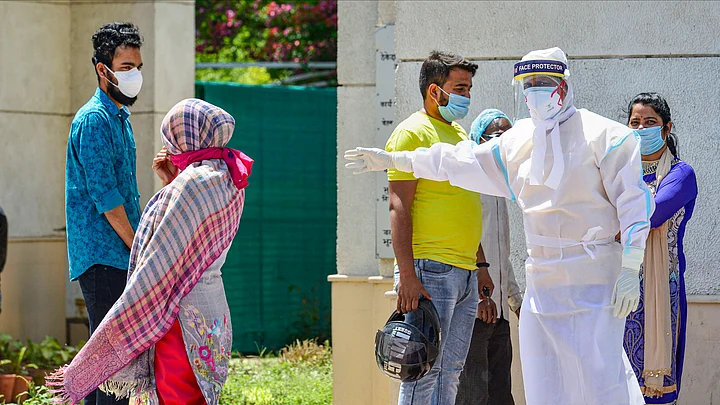Even as COVID-19 cases continue to rise across India, people remain optimistic that the crisis may be nearing its end.
According to a survey conducted by CVoter, 62.3 percent people surveyed in India say that “the worst is over” when they were asked what they think is going to happen in the next one month in the COVID-19 crisis.
On the other hand, 22.8 percent said that “the worst is yet to come” and 6.7 percent said that “things will remain the same”.
The morale among people seems to have improved over the past one week. This is the third phase of the survey and it was conducted in the first week of April.
In the second phase of the CVoter COVID-19 sentiment tracker in the last week of March, 57.5 percent people had said that “the worst is over”, five percentage points less than phase three.
However, the proportion of people saying that “the worst is yet to come” also increased from 17.6 percent in the last week of March to 22.8 percent in the first week of April. It is the number of people saying “don’t know/can’t say” that has gone down, from 18.3 percent in phase two to 8.3 percent in phase three.
The responses of a few demographic groups is particularly significant:
- The optimism is highest among older people with 76.3 percent of the respondents above 60 years saying that the worst is over.
- 70.4 percent Muslim respondents also had the same opinion.
- On the other hand, pessimism was highest among the rich with 45.9 percent people in the higher income group saying that the worst is yet to come.
Another question in the survey gave interesting results. When people were asked whether they fear if they or someone in their family may contract COVID-19, the proportion of those who “strongly agree” as well as those who “strongly disagree” have gone up between phases two and three.
In phase three in the first week of April, 30.1 percent respondents said that they “strongly agreed” that they or their families could get affected by COVID-19, up marginally from 29.3 percent in the last week of March.
On the other hand, those who “strongly disagreed” that they or their families are under the threat of the virus, increased from 31.5 percent in phase two to 39.3 percent in phase three.
So this data also seems to be in line with the “optimistic” view that a large proportion of respondents have regarding the crisis.
However, it is important to remember that these are merely the perception of the survey respondents to the COVID-19 threat, it may not necessarily reflect the actual seriousness of the threat.
(At The Quint, we question everything. Play an active role in shaping our journalism by becoming a member today.)
